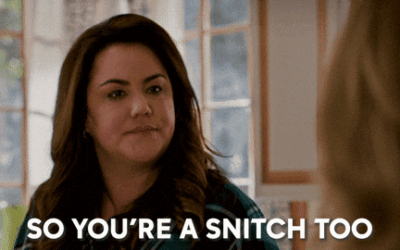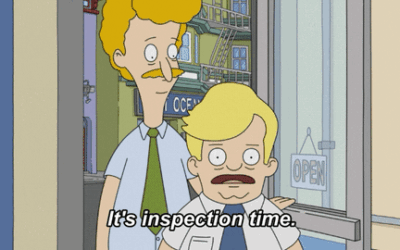Would a Domain by any other name smell as sweet?
Domains – the internet wouldn’t work without them, but you might not know how they work. Let’s go over the basics, FAQ style.
What is a domain name?
- Basically, a domain name is the address that web browsers like Chrome, Firefox, or Safari use to find the website that you want to look at.
- It is a part of the uniform resource locator (URL) used to access websites. For example: In the URL http://www.example.net/home.html, the domain name is example.net.
- If you break the URL down further, you have the top-level domain (net), the second-level domain (example), and the hostname (www).
How do domains work?
- When you click on a link, or type in a URL of a website you want to visit, your browser sends your request to the network of Domain Name Servers (DNS).
- The DNS servers look for the name servers associated with that domain. Name servers work like a phone book that says which server stores the webpage you are looking for. The name server finds the correct web server, and forwards your request there.
- Web servers hold the files that make up websites. So when the web server software gets your request, it finds the files and sends them back to your browser.
- Domains aren’t just for websites, they are also used for email records, security records, subdomains, and proof of ownership.
What does it mean when I buy a domain?
- When you purchase a domain, you are really only purchasing the right to use that domain for a certain period of time, usually from one to about ten years before it needs to be renewed. ICANN (Internet Corporation for Assigned Names and Numbers), the governing body that oversees IP and DNS addresses, creates top-level domains (TLD) like .com, .tv, and .edu. They then accredit domain registrars with the ability to maintain the registration records for and sell the use of second-level domains to the end users. The registrars make sure that all the ownership records are in place, so two people can’t own the same domain. Often, end users will go through a domain management provider to purchase and manage their domains, records, and renewals for them, as the process can be very technical and not at all fun to deal with. Soteria is a domain management provider.
What can I do with my domain?
- You can use your domain to connect to a website that you have had developed.
- You can connect your domain to an email service so the public can email you at yournamehere@yourdomainhere.example
- You can let your web developers access your domain to add records (see below) by changing Name Servers.
- You can redirect traffic from one domain to another domain’s website
What is a Record?
- Records are information that gets placed onto a domain to tell any incoming traffic where to find certain information.
- A record could be anything from a website IP, to security text telling email how to function, to domain verification that proves who owns the domain.
- Records are almost always provided by a service provider, such as a web developer, email provider, or any registered service. Usually, you would only need to forward any records those services provide on to your domain management provider.
Can I buy a domain without going through a registrar?
- No. You need a registrar to provide the registration service, and that registrar becomes the designated registrar for that domain. Only the designated registrar can modify or delete information about domain names in a central registry database. Domain management providers work closely with the designated registrar to make changes as needed.
Can I move my domain to a different registrar?
- Yes. It’s not unusual for users to move their domains between registrars. There is a specific domain transfer process that the registrars perform to do this.
Can I cancel my domain?
- Not really. You can choose not to use it, but it is still yours until the time you purchased on your registration runs out. After that, and a grace period, the domain will go back on the market.
Can I move my website to a different domain?
- Yes. You just need to have the registrar change the DNS records so the new domain points to your website. It is possible to have two domains point at the same site, but it’s not a recommended practice.
Can I sell my domain?
- Yes. Buying up domains that you think will be in demand in the future and reselling them can be a big business. Soteria does not offer a marketplace to facilitate the selling of domains, but if you do sell a domain that we manage, we can assist with the transfer of ownership keys.
Do I need more than one domain?
- That depends. Some companies like to purchase as many domains as they can that are related to their brand, so they can be sure that they control those domains, whether they do anything with them or not. That way, they canbe sure that customers don’t accidentally go to a similar looking website that is run by rivals, detractors, or scammers. It can get expensive to hold a lot of unused domains, you must decide for yourself how wide a net you want to cast to protect your brand.
- For instance, a company could buy as many different top-level domain variants as possible:
example.com, example.org, example.tv, example.eu
- Then they could look at common misspellings:
eggsample.com, exanple.com, ecxample.com
- And domains that might attract negative attention:
exampleisterrible.com, ihateexamples.com, examplesucks.com
Can Soteria help me buy a domain?
- Yes! As a domain management provider, we can purchase and fully manage domains for you. Let us know what you need.










